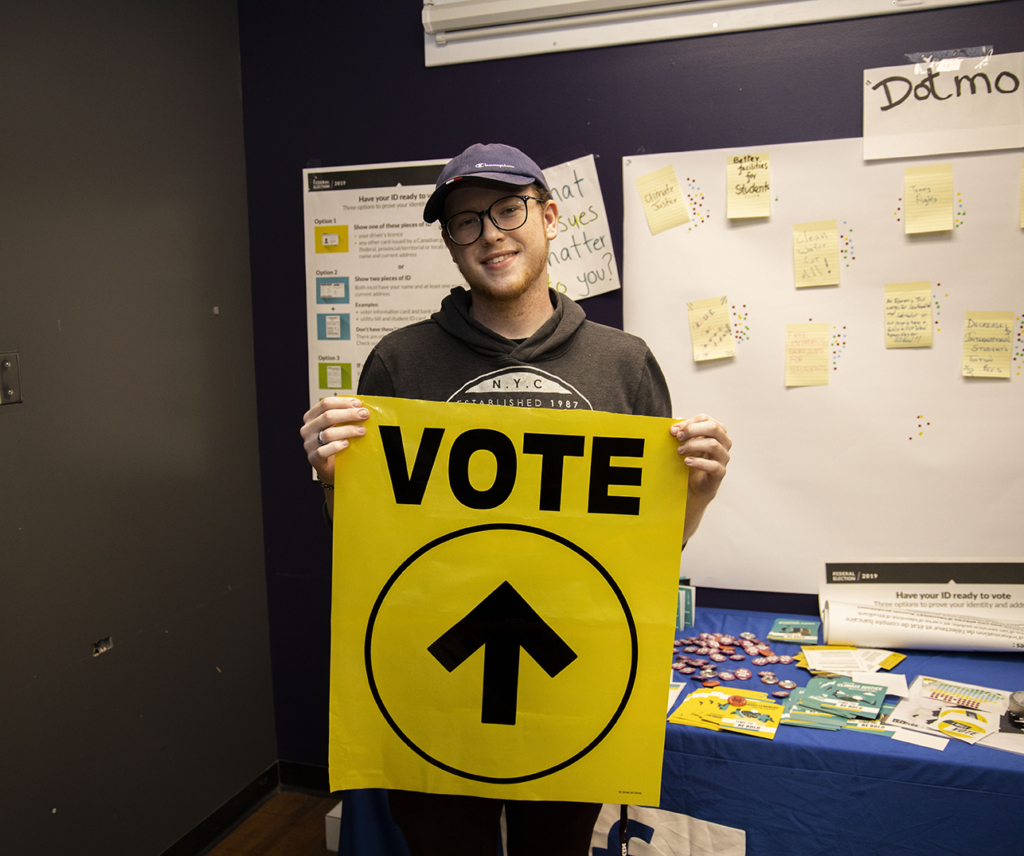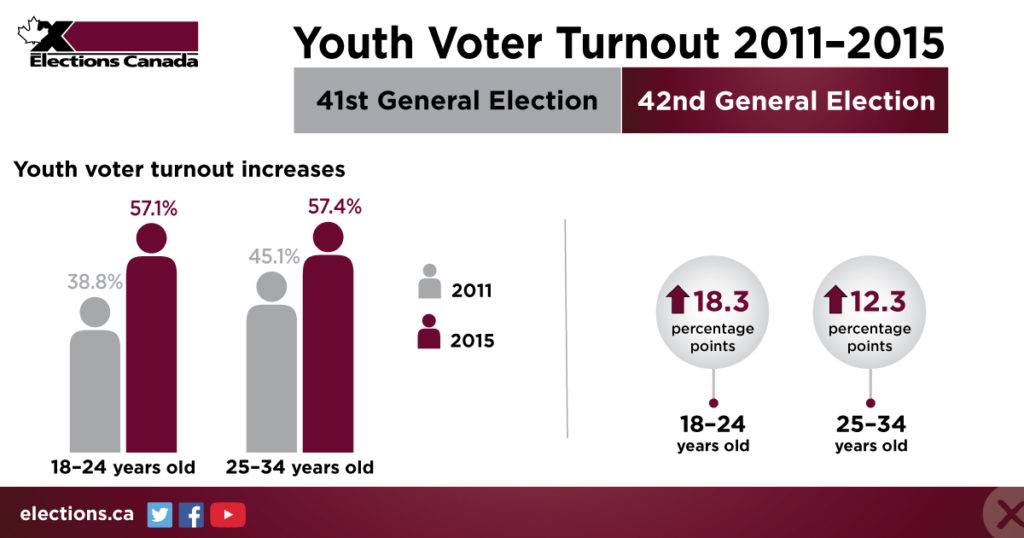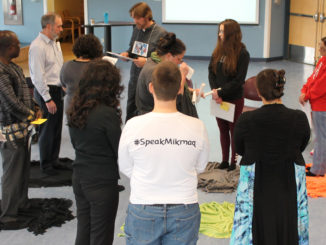While it’s nice to have on-campus voting, one student says parties need to do more to let young people know about their platforms.

Allan BradburyKicker
Allan Bradbury
Kicker
Elections Canada is working to get young people out to vote. But students are not always as well informed as they could be when they go to the polls.
A successful pilot project during the 2015 election, which placed polls at 39 post-secondary campuses across the country, helped raise the voter turnout by 18.3 percentage points. Post-secondary students at 119 campuses across Canada were able to vote for candidates in their home ridings last week, despite being away from home.
“We want to give everybody who has the right to vote the opportunity to vote,” said Françoise Enguehard, regional media adviser for Elections Canada in the Atlantic provinces.
Enguehard says Elections Canada has worked to identify communities where the youth demographic is large. They have put in place a community relations officer dedicated to youth to increase awareness about when and where polling is taking place.

Riley Cotter is from Melrose, on the Bonavista Peninsula. He recently turned 19 and was able to vote in a federal election for the first time, via the advanced polls at Memorial University last week.
“It was important for me to vote for someone at home because I feel like there’s enough of a young voice in (St. John’s),” Cotter said. “I feel like out towards home it’s important that every view is expressed more so because it tends to be more limited with the older skewing population, especially since older people are more likely to vote.”
Cotter isn’t wrong, in the 2015 federal election voters in the 65-74 year-old demographic turned out at 78.8 per cent.
It was especially important for Cotter to vote in his local riding as he is a member of the LGBTQ community and rural Newfoundland tends to be more conservative at times.
Cotter says it was important for him to do his research before he voted. He read a lot of articles and tried to read each party’s platform. The Conservative party, however, hadn’t released its platform by the time he voted.
Cotter feels parties could do a little better to get their platforms in front of younger voters.
“I find that people my age aren’t necessarily always wholly informed on everything,” said Cotter. “It’s very much reliant on Facebook articles, headlines and that kind of thing.”




Be the first to comment